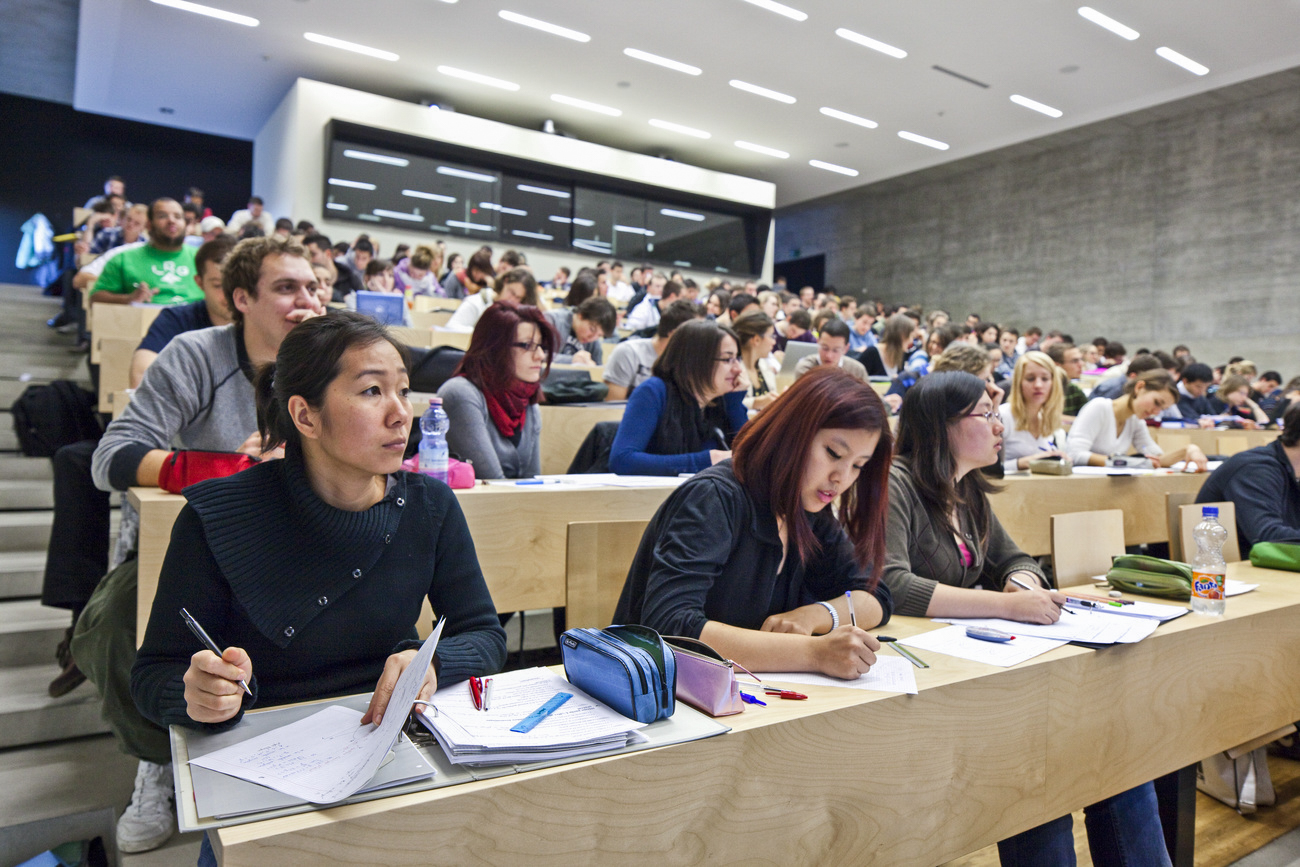
Surge in PhDs in Switzerland driven by international students

According to a report from Swiss universities in the French-part of the country, the number of PhD students in Switzerland is steadily increasing. Their numbers have doubled over the past 30 years, largely due to the influx of international students.
A PhD, or doctorate, is the degree awarded for academic research, usually achieved by completing a doctoral thesis.
+ Sign up to get the most important news from Switzerland directly in your inbox
Last year, Swiss universities had 21,200 PhD students in fields like physics, computer science, gender studies, law, and art history –twice as many as 30 years ago, according to an annual report from the Conference of Western Swiss Universities (CUSO).
This increase in the number of PhD students is entirely due to the recruitment of international students. Denis Billotte, General Secretary of CUSO, points out that the proportion of foreign PhD students varies widely across different fields. Mechanical engineering (around 80%) and natural sciences (over 70%) are among the most affected areas.

More
Could international graduates solve worker shortages in Switzerland?
Broader research opportunities
Switzerland appeals to these students because of its high-quality education, excellent salary and working conditions, and central location in Europe.
“For someone coming to do a PhD in Switzerland, such as from China or India, there’s an appeal in connecting with the European system and funding, as well as joining research networks,” Billotte told Swiss public radio RTS on Tuesday.
+ Why more women than ever are doing PhDs in Switzerland
The number of Swiss PhD students remains stable but high. In Switzerland, 3% of the population holds a doctorate, compared to an average of 1% in countries of the Organisation for Economic Co-operation and Development (OECD).
Translated from French by DeepL/sp
This news story has been written and carefully fact-checked by an external editorial team. At SWI swissinfo.ch we select the most relevant news for an international audience and use automatic translation tools such as DeepL to translate it into English. Providing you with automatically translated news gives us the time to write more in-depth articles.
If you want to know more about how we work, have a look here, if you want to learn more about how we use technology, click here, and if you have feedback on this news story please write to english@swissinfo.ch.

In compliance with the JTI standards
More: SWI swissinfo.ch certified by the Journalism Trust Initiative






























You can find an overview of ongoing debates with our journalists here . Please join us!
If you want to start a conversation about a topic raised in this article or want to report factual errors, email us at english@swissinfo.ch.